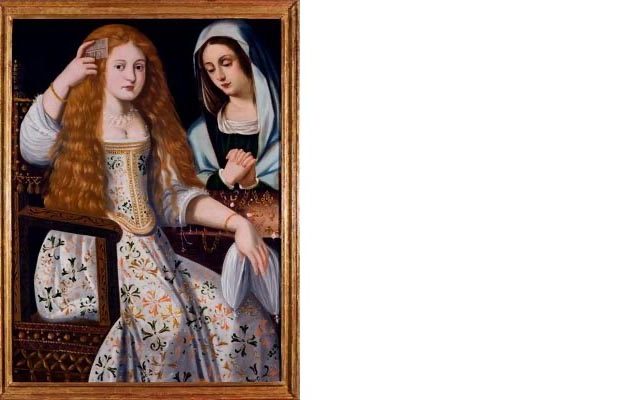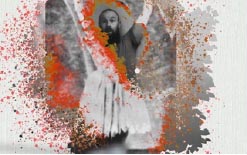
Taking Comedia Online, by Barbara Fuchs, UCLA
It has been an interesting year for a core program on performance studies, to say the least. As with so much, the pandemic necessitated a switch to virtual programming for our planned conferences (“Resituating the Comedia”), and meant that our Ahmanson-Getty postdoctoral fellows could only join us remotely. Despite these challenges, both Dr. Sarah Grunnah and Dr. Richard Huddleson became an integral part of our comedia community. They both presented their ongoing research in our virtual conferences and joined us weekly for the Working Group on Comedia in Translation and Performance, which has continued to meet on Zoom as we attempt a collaborative translation of Sor Juana Inés de la Cruz’s Amor es más laberinto.
The LA Escena festival (Hispanic classical theater) in November 2020, which I had always imagined as a key component of my program year, also required reimagining in a virtual formal, with our partners A Noise Within and Playwrights’ Arena. Although this made for a very different kind of experience, it allowed us to host performers from Spain, Mexico, and various parts of the US in a more ambitious program of ten separate events, and to explore in real time how the comedia was being reimagined for the pandemic moment. The online format enabled the scholars and attendees at our first conference, “Making Classics: Canonicity and Performance,” (Nov. 12-13, 2020) to experience the very latest in how performance transforms the canon, via a form now remediated onto digital stages.
As my own research pivoted to digital theater, and given the exigencies of the moment, I organized two online roundtables on “For a Theater of the Future” with Los Angeles-based scholars, theater practitioners, critics, and presenters (Dec. 4, 2020; Jan 15, 2021). In conjunction with the roundtables, I commissioned from artists Elena Araoz, Annie Louie, and EFE Tres Teatro three short pieces to explore the conjunction of the classics and digital performance, so that we could bring practice as well as theory into our discussions. Work-in-progress versions were presented as part of the second roundtable, opening new vistas of possible intersections between the comedia and the very cutting edge of theatrical experimentation. The three digital pieces deployed various new technologies, from lenses to OBS editing software, and explored the affordances of multi-platform work, including “staging” a piece on multiple devices for the metatheatrical dialogue among them. Dr. Grunnah also translated and produced a new work of distanced theater as part of the program year: Silence is Golden, her translation of Calderón’s No hay cosa como callar, was recorded in an audio version by UCLA theater students, under the direction of the inestimable Michael Hackett.
 In February, we held the second and final conference in the program year, “Made for the Stage: Translation and Performance.” Especially lively was a translation workshop on Zoom, which gathered both novice and expert practitioners for a conversation on the challenges of translating for the stage.
In February, we held the second and final conference in the program year, “Made for the Stage: Translation and Performance.” Especially lively was a translation workshop on Zoom, which gathered both novice and expert practitioners for a conversation on the challenges of translating for the stage.
To round out the year, in April Diversifying the Classics hosted a related program on comedia, “Romeos & Julietas: All Alike in Dignity,” featuring scholars and translators discussing the various iterations of the famous lovers in English, Spanish, and bilingual versions, with scenes on Zoom from Dakin Matthews new translation of Lope de Vega, The Capulets and The Montagues.
However paradoxically, and despite its many challenges, this has been a banner year for performance studies of the comedia, and one we will not soon forget.

